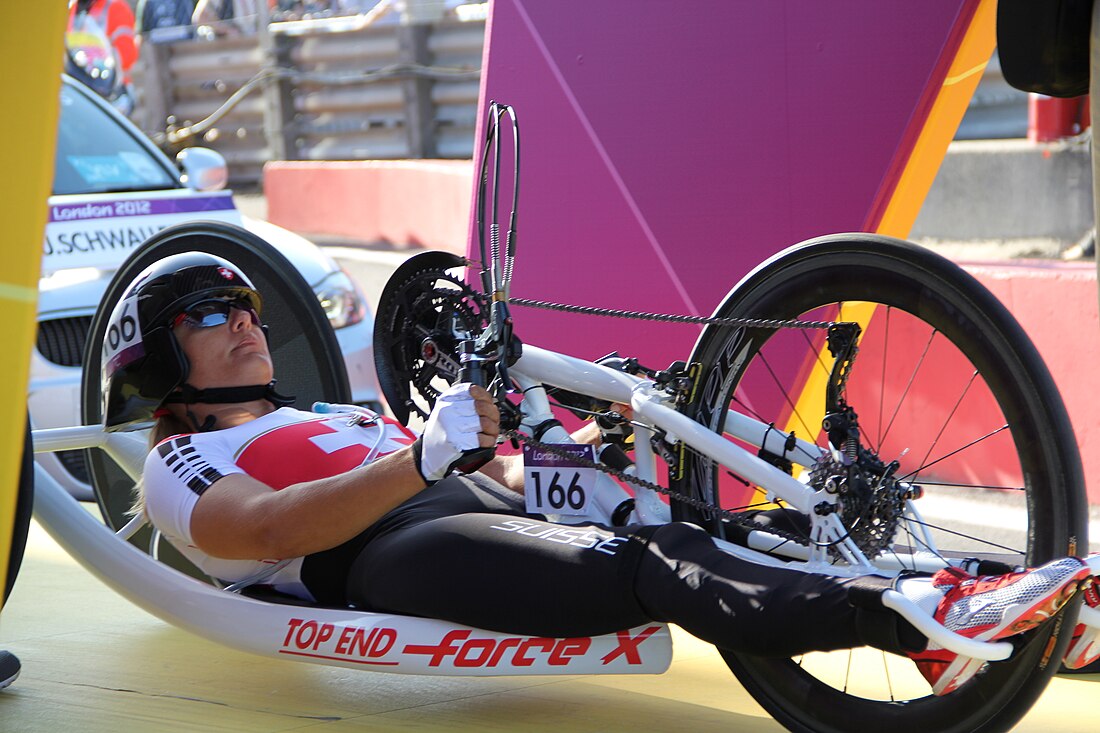Para-cycling (or paracycling/para cycling) is the sport of cycling adapted for cyclists who have various disabilities. It is governed by the Union Cycliste Internationale (UCI). The sport consists of seven different events which include road and track races. The world's elite para-cyclists compete at Track and Road Worlds Championships since 1994, the Commonwealth Games, the Paralympic Games and the World Cup since 2010.[1]

History
Para-cycling originated in the 1980s, starting with visually impaired riders who competed on a tandem with a sighted partner. In New York 1984 it entered the Summer Paralympic Games, where it consisted of only road races for riders with cerebral palsy.[2] Over the next four Paralympic Games further events were added. In Atlanta 1996 track cycling was included as well as a variety of disabilities in various functional categories. Handcycling was included in the 2000 Sydney Paralympics as an exhibition event.[3]
Events

Para-cycling events consist of the following three road races and five track events:[4]
Road
- Road race (men and women)
- Individual time trial (men and women)
- Handcycling team relay (men and women, mix)
Track
- Tandem sprint (men and women)
- Team sprint (men and women, mixed event)
- 500 m time trial (men and women) or kilometre time trial (men and women)
- Individual pursuit (men and women)
- Scratch race (men and women)
Classification
Classification of riders consists of three broad groups; visual impairment, cerebral palsy and physical impairment.[2] These are subdivided into 14 functional categories for men and women. Riders are placed in the appropriate category according to their functional ability.[1]
B: blind (tandem) B1-2
C: cycle C1-5
H: handbike H1-5
T: tricycle T1-2
See also
References
External links
Wikiwand in your browser!
Seamless Wikipedia browsing. On steroids.
Every time you click a link to Wikipedia, Wiktionary or Wikiquote in your browser's search results, it will show the modern Wikiwand interface.
Wikiwand extension is a five stars, simple, with minimum permission required to keep your browsing private, safe and transparent.
